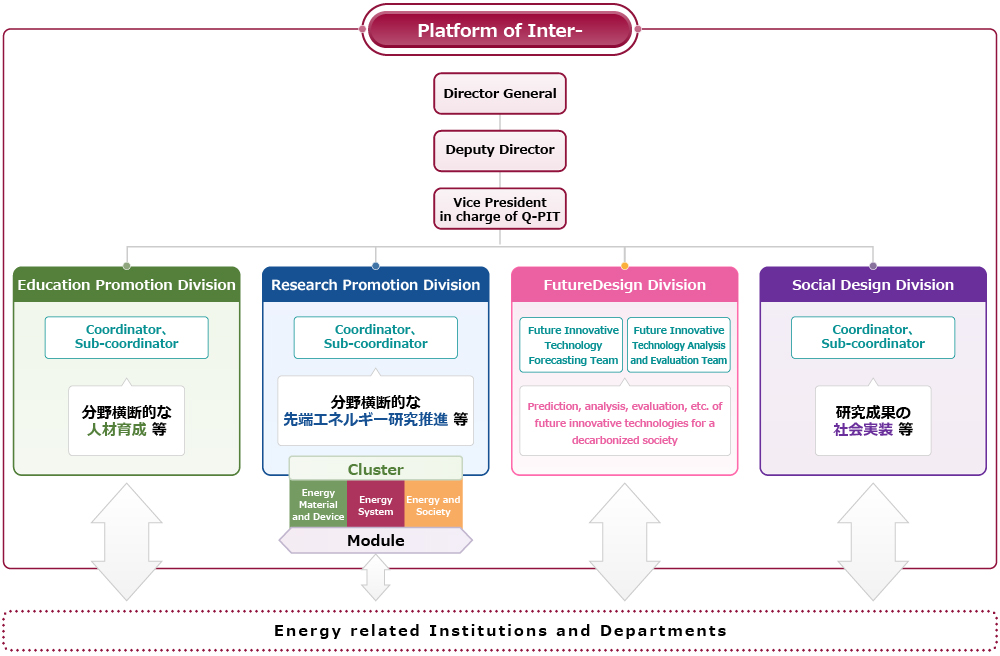In order to realize “energy for society of the second half of this century and beyond the year 2100,” Q-PIT will engage in the following activities as a platform that brings together researchers in the energy field, spanning from the natural sciences to the humanities and social sciences.
Management System Diagram

Overview of each division
Education Promotion Division
- Development and management of energy-related education programs for cross-disciplinary human resource development
- Research and analysis on energy-related education
- Support for doctoral students in energy-related academic fields and majors, etc.
Research Promotion Division
- Public solicitation and promotion of inter-disciplinary advanced energy research
- Support and incubation of vision-driven research projects
- Establishment of gateway function in energy research
- Dissemination of energy research results to the public and industry , etc.
Social Design Division
- Presenting a Grand Design for a Decarbonized Society
- Practical implementation of energy research results
- Responding to requests and consultations from industry and local governments regarding energy research
- Promotion of joint and funded research on energy, support of incubation, etc.
Future Design Division
- Constructing a platform for continuous innovation creation towards a decarbonized society
- Research and forecasting of innovative technologies for a decarbonized energy future
- Identification of promising technologies through evaluation and analysis of cutting-edge research for a decarbonized future
- Future energy design considering the needs of future society, etc.
Overview of each cluster
Energy Materials and Devices Cluster
Research on cutting-edge materials and devices related to foundational technologies for energy conversion, energy conservation, and energy utilization
Energy System Cluster
Innovative energy systems reserch, including the systems with increased utilization of various renewable energies, carbon recycling, infrastructure for a decarbonized society, and next-generation mobility
Energy Society Cluster
Research on the future society vision, lifestyles, living and urban environment, and social design that take into account human sensitivity and wellbeing, as well as regional growth strategies and models for a decarbonized society.
Overview of Modules
Based on proposals from faculty members participating in each cluster, interdisciplinary research groups, or ‘modules,’ will be established. These modules aim to create innovations that will not only realize a decarbonized society but also solve social issues. We believe that through integrated knowledge from the humanities, social sciences, and the natural sciences, we can make a significant impact.
To promote efficient collaboration module research are envisioned, and support (start-up funding) will be provided for the planning of collaborative research within the university aimed at stimulating and advancing cooperation in energy research.
We aim to develop module research into:
- Projects based on competitive funding, such as national projects
- Initiatives that lead to social implementation, such as collaboration with local communities and businesses and demonstration experiments
- Initiatives for the advancement of new science and technology that lead to the solution of challenging issues.
